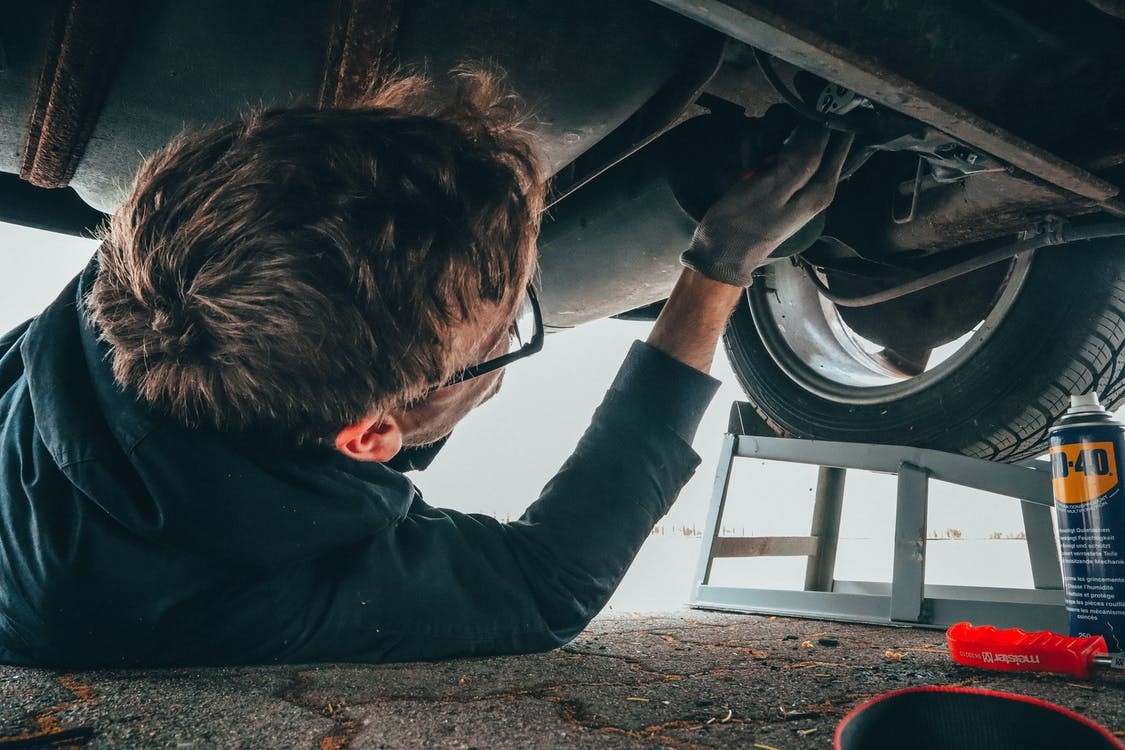Top Reasons for Water Coming Out Of Exhaust
Water coming out of a car’s exhaust can be quite a concerning sight, hinting at potential underlying issues in the vehicle. Understanding why this happens is crucial to maintaining your vehicle and driving safely. In this article, we will shed light on the top reasons behind the unsettling phenomenon of oily water coming out of an exhaust.
Importance of the Exhaust System in Your Car
The exhaust system in your car is a critical component that plays a multifaceted role in ensuring optimal vehicle performance, efficiency, and environmental friendliness. Its significance cannot be emphasized because it performs a number of essential tasks that are essential to the general running of your car.
Gas and Emission Management
The primary function of the exhaust system is to direct toxic gases created during combustion out of the engine and away from the inside of the car. It helps to expel and redirect toxic emissions such as carbon monoxide, nitrogen oxides, and hydrocarbons away from the occupants, maintaining a safe driving environment.
Engine Performance
The exhaust system’s effective operation greatly influences the engine’s overall performance. It facilitates the correct flow of exhaust gasses, which helps the engine’s combustion process by keeping the engine running at its ideal temperature. A well-functioning exhaust system helps maintain engine power, fuel efficiency, and responsiveness.
Noise Reduction
Beyond managing emissions, the exhaust system also plays a pivotal role in reducing the noise generated by the engine during combustion. The muffler, a key component of the exhaust system, works to dampen the loud noises produced by the engine, ensuring a quieter and more comfortable driving experience for both the driver and passengers.
Environmental Impact
Complying with environmental requirements, an efficient exhaust system reduces the amount of hazardous chemicals released into the atmosphere. Catalytic converters, present in most modern exhaust systems, aid in converting harmful gases into less harmful emissions before releasing them into the environment.
Overall Vehicle Health
Several engine parts have a longer lifespan when the exhaust system is kept in good condition. It helps prevent backpressure, which, if left unchecked, can cause damage to the engine, affecting its overall performance and lifespan. To prevent possible problems that might affect the vehicle’s efficiency and health, the exhaust system has to undergo maintenance on a regular basis.
Regulatory Compliance
Adherence to emission standards and regulations is mandatory in many regions. A functioning exhaust system ensures compliance with these standards, preventing fines and legal repercussions associated with excessive emissions.
Understanding the Phenomenon
Before looking into the causes, it’s essential to understand why and how water comes out of the exhaust. Typically, a vehicle’s exhaust expels gases formed during the combustion process. However, when there’s water mixed with oil being emitted, it could be indicative of internal engine problems. This amalgamation often appears as a milky or foamy substance.
Reasons for Oily Water Discharge
Condensation in the Exhaust System
Oily water may result from normal condensation within the exhaust system. As the car engine operates, it over heat, causing moisture to accumulate inside the exhaust. This moisture combines with the remnants of burned fuel, creating the oily water discharge.
Blown Head Gasket
Coolant leakage into the combustion chamber might occur due to a ruptured head gasket. When the coolant mixes with the engine oil, it forms a milky, oily substance that eventually exits through the exhaust. This issue demands immediate attention to prevent severe engine damage.
Cracked Cylinder Head or Engine Block
Coolant and engine oil may mix as a result of any damage to the cylinder head or engine block. This mixture can manifest as oily water in the exhaust. It’s a serious concern requiring professional inspection and repair.
Excessive Idling or Short Trips
Cars that frequently undergo short trips or remain idle for prolonged periods often don’t reach the optimum temperature for the exhaust system to evaporate the accumulated moisture. This can result in water buildup and its subsequent expulsion through the exhaust.
Worn Piston Rings
Engine oil leakage into the combustion chamber may be the result of worn-out piston rings. As a result, this oil mixes with the exhaust gases, leading to the appearance of oily water. Replacing the piston rings is essential to rectify this issue.
Solutions and Remedies
Regular Maintenance and Inspection: Regularly scheduled maintenance can prevent various issues, including blown gaskets, worn-out parts, and other engine-related problems. Timely inspections by a qualified mechanic can identify potential concerns before they become imminent disasters.
Addressing Cooling System Problems: Verify that the cooling system is operating at its best by looking for leaks, coolant levels, and the state of the radiator. Resolving any cooling system problems as soon as possible helps stop coolant from getting into the combustion chamber.
Avoiding Short Trips and Idling: Try to avoid frequent short trips and extended idling periods. If unavoidable, allowing the engine to warm up properly can reduce the accumulation of moisture within the exhaust system.
Professional Repairs: Seek assistance from a certified mechanic or technician for accurate diagnosis and repair of any underlying mechanical issues causing oily water to come out from the exhaust.
When Should You Worry About Water Coming Out Of The Exhaust?
Worrying about water coming out of your car’s exhaust depends on the nature and volume of the water, as well as its consistency. While some moisture is a normal byproduct of the combustion process, specific scenarios may warrant concern:
Continuous Oily Water Flow: If you consistently observe a steady flow of milky or foamy substances from the exhaust. Then, this could indicate a more serious issue. Oily water is often a sign of coolant or engine oil mixing with exhaust gases, possibly due to a blown head gasket, cracked engine block, or other internal engine problems.
Large Amounts of Water: Excessive amounts of water or an ongoing stream of water vapor, particularly if it’s not a cold day or after short trips, might signal an underlying problem. This could suggest a coolant leak or other issues that need immediate attention.
Persistent Symptoms: If you notice repeated occurrences of water or unusual emissions from the exhaust, it’s a sign to be concerned. Regular or consistent appearance of water in your exhaust should prompt an inspection to avoid potential engine damage.
Engine Performance Changes: Any accompanying changes in your vehicle’s performance, such as reduced power, overheating, rough idling, or a decrease in fuel efficiency, along with the presence of water from the exhaust, could indicate a serious issue requiring prompt attention.
In these situations, it’s crucial to seek professional help from a certified mechanic. Ignoring continuous water emissions or significant changes in exhaust appearance can lead to severe engine damage or compromised vehicle safety.
Final Thoughts
In conclusion, the presence of oily water from a car’s exhaust signals potential issues that demand prompt attention. Whether it’s coolant leakage, engine oil contamination, fuel system irregularities, or engine overheating, understanding the causes is crucial. It empowers vehicle owners to take proactive measures to safeguard their vehicle’s health.
Understanding the reasons behind oily water coming out of the exhaust is crucial for maintaining a vehicle’s performance and longevity. Car owners may efficiently handle faults and guarantee their vehicle operates properly by identifying these possible problems early on and adopting proactive measures



